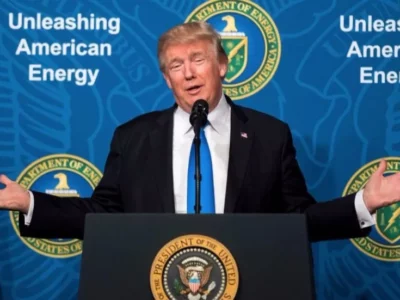Guest Blogger Divya Rao: Sen. Udall and Rep. Lowenthal Champion New Legislative Effort to Curb Plastic Waste Pollution
Comprehensive federal legislation on single-use plastics, from bags to straws, anticipated to drop in Fall 2019
This past January, I was one of two students who had the opportunity to travel to Washington D.C. with the Surfrider Foundation and UCLA’s Frank G. Wells Environmental Law Clinic to brief Congress on harms caused by marine plastic pollution and steps the federal government can take to combat the problem by reducing waste from single-use plastics.
Today, Congress took a first step towards comprehensive federal action in the United States on the single-use plastic crisis. U.S. Representative Alan Lowenthal (D-California) and U.S. Senator Tom Udall (D-New Mexico) released a legislative outline for comprehensive federal legislation on single-use plastics. The legislative outline firmly frames the purpose of the legislation as protecting human health, as well as animal and environmental health—looking specifically at landscapes, waterways, and oceans. The proposed legislation includes multiple policy mechanisms to reduce plastic waste, including:
- A hybrid plastic bag ban and fee: banning all light-weight (“thin”) plastic bags and placing a fee on all carryout bags (thick plastic bags and paper bags); collected fees will be placed in a federal fund for pollution reduction, environmental remediation efforts, and research into sustainable plastic alternatives
- A ban on other single-use plastics such as cups, lids, cotton buds, cutlery, plates, straws, stirrers, and snack packaging
- A ban on polystyrene food-ware (containers and cups), coolers, and shipping packaging
- An extended producer responsibility (EPR) program placing the economic burden of end-of-life waste management on plastic manufacturers and producers
- Measures to improve the recyclability of plastics including (1) collection targets for plastic bottles and (2) requirements to create packaging/bottles made from 100% recyclable materials
The multi-prong strategy developed in Senator Udall and Representative Lowenthal’s legislative outline tracks closely many of the recommendations made by Surfrider Foundation and the UCLA Frank G. Wells Environmental Law Clinic in briefings this past January.
In recent months, plastic pollution has continued to remain a hot issue for governments and corporations with new and increasing commitments to plastic waste reduction efforts announced regularly, as well as conflict over international shipments of plastic waste.
In May:
- Maryland became the first state to ban expanded polystyrene food packaging, including takeout containers and cups. The law went into effect on July 1st, 2019.
- 187 countries (excluding the United States) came together in Geneva and amended the Basel Convention on the Control of Transboundary Movements of Hazardous Waste and their Disposal to include plastic waste—creating a legally binding commitment to limit plastic pollution.
- Malaysia continued its efforts to return contaminated plastic waste to a number countries in an outright refusal to continue accepting the world’s waste. Malaysia has already returned shipments to Spain, and planned to ship waste back to the US, UK, Canada, Japan, Netherlands, and Singapore.
- Qantas Airlines conducted the first commercial “zero-waste-to-landfill flight,” substituting 1,000 single-use plastic items with sustainable and/or biodegradable options.
In June:
- Vermont adopted a comprehensive plastics bill banning single-use plastic bags, stirrers, cups, and food containers, as well as limiting straws by request.
- Contaminated plastic waste was returned to Canada after a long diplomatic spat with the Philippines, which involved threats of war by President Duterte.
- Canada also announced a goal to ban all single-use plastics by 2021 and implement additional efforts to reduce greater plastic waste.
In July:
- The G20 announced the “Osaka Blue Ocean Vision” in their final declaration from the summit, which set a goal for reducing additional marine plastic pollution to zero by 2050.
- Gemini Corporation, Sinopec, and PepsiCo, amongst other corporations, joined the Alliance to End Plastic Waste.
The proposed federal legislation, as outlined today, will reduce plastic at the source by limiting the availability of single-use plastics and placing economic pressure on corporations to manufacture more sustainable products and be responsible for products at their end-of-life. These policy strategies for single-use plastics have already been proven effective—for example, plastic bag bans on average are capable of reducing consumption by 80% within a few months of implementation. Moreover, single-use plastic bag laws have already been implemented either state-wide or locally in 21 states across the nation.
This legislative effort comes at a critical time for single-use plastic regulation in the United States. While numerous laws and ordinances on single-use plastics have been implemented and have achieved great success, several states have launched efforts to preempt and effectively shut down local action on plastics. In 2019 alone, Tennessee, Oklahoma, and North Dakota enacted statewide preemption laws. In total, 14 states have preempted plastic bag bans, fees, or both. While a number of states are waging efforts against preemption laws that stymie local efforts to reduce plastic waste, the threat of preemption remains very real.
The federal government would be able to put these fights to an end by enacting the proposed legislation on single-use plastics. While bipartisan efforts to regulate marine plastic pollution, like the 2015 Microbead-Free Waters Act and the 2018 Save Our Seas Act, have been successful in the past, it remains to be seen how this most recent legislative effort on plastics will be received in Congress. .
Congressional leaders are accepting comments from stakeholders on the legislative outline through August 21, 2019. Comments may be submitted to [email protected] and [email protected]. Senator Udall and Representative Lowenthal plan to introduce the legislation in Fall 2019.
Divya Rao is a joint JD/MBA candidate at UCLA School of Law and Anderson School of Management. Divya recently completed her second year at the law school and is serving as an intern for the Emmett Institute this summer.








Reader Comments